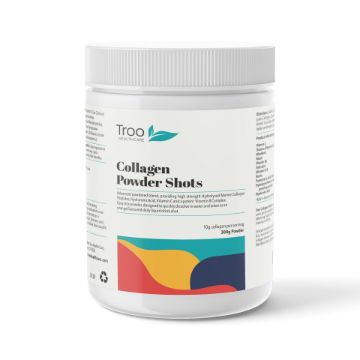Protein is an important component of every cell in the body and is absolutely essential to health. Your body uses protein to build and repair all tissue in the body and is an important building block of bones, muscles, cartilage, skin, and blood. We also use protein to make enzymes, hormones, and other body chemicals that support our well-being and mood.
Proteins are made up of hundreds or even thousands of small units called amino acids, that are attached to one another in long chains. There are 20 different types of amino acids that can be combined to make a protein and 9 of which the body cannot make itself and deemed 'essential'.
Protein, alongside fat and carbohydrate is a "macronutrient," meaning that the body needs relatively large amounts of it to survive. However unlike fat and carbohydrates, the body does not store protein, and therefore has no reserves to draw on when it needs a new supply.
Protein is the second most abundant compound in the body, after water. A large proportion of this is muscle (43% on average) and showing significant proportions present in the skin (at around 15%) and blood (at around 16%).
Protein provides 1 gram of 17 kJ (4 kcal) and the Reference Nutrient Intake (RNI) in the U.K, is set at 0.75g of protein per kilogram of bodyweight per day, for adults.
However, new research demonstrates that an optimum and healthy baseline amount of protein per day is 1 gram per 1kg of body weight. When exertion and exercise is added into the mix, this amount goes up to around 1.8 grams per 1kg of body weight and raises dependent on the type of exercise such as body building. Studies reveal that whey protein can help build and maintain muscle mass, assist athletes with recovery from heavy exercise and increase muscle strength in response to strength training.
There are numerous types of protein powders made from a wide variety of sources that more and more people supplement with on a daily basis to ensure they are boosting their dietary protein content. These sources are commonly whey, pea, and hemp protein powders.
Whey protein is a mixture of proteins isolated from whey, which is the liquid part of milk that separates during cheese production. It is one of the best-studied supplements in the world. It provides complete amino acids, it's easily absorbed and the most readily available protein to man, claims many evidence based research around muscle mass and offers many other health benefits.
Pea protein powder is a supplement made by extracting protein from yellow peas. It is an amazing source of protein and perfect for those with dairy intolerances or those seeking alternatives to animal products. It contains all 9 amino acids that your body cannot make itself. It is also a great source of iron. This is a wonderful vegan option and one to look out for.
Hemp is made by grinding pressed hemp seeds into a fine powder. It is commonly spoken about these days for its fatty acid profile but few of us talk about its protein content. It contains all nine essential amino acids, plus fibre, omega fats and some minerals such as potassium and magnesium. Hemp is a wonderful option if intolerant to dairy or peas and you like nutty flavours.
When would you think about supplementing your diet with an excellent protein powder
- Wanting an easy breakfast option, that provides optimum nutrition
- Increasing your daily protein intake
- Looking for an easy source of protein before or after sports training or a workout
- Increasing muscle mass and size
- Trying to maintain lean mass
- Maintaining healthy bones
- Can help to regulate blood sugars and reduce appetite
- Supports healthy metabolism
- Pre and post-surgical operations
- Convalescing
Even though a higher protein intake can have health benefits for many people, it is not necessary for everyone. Many people receive around 15% of their calorie intake from protein, which is more than enough to prevent deficiency. However, in certain cases, as listed above, people can benefit from eating more than that.





